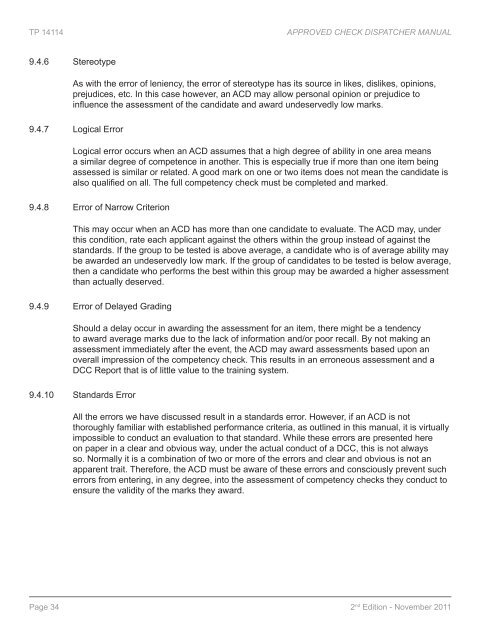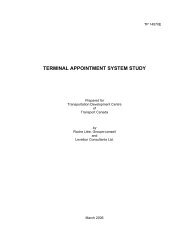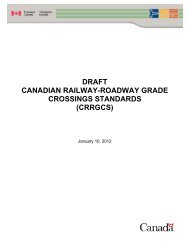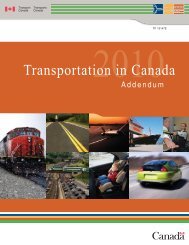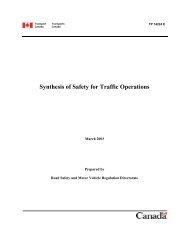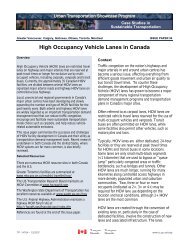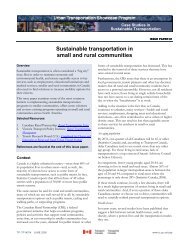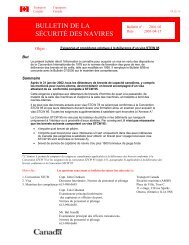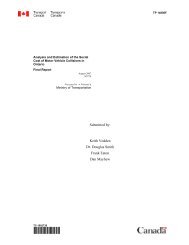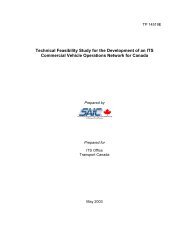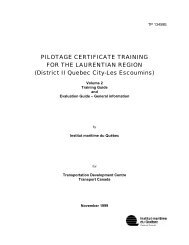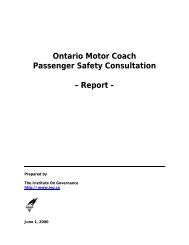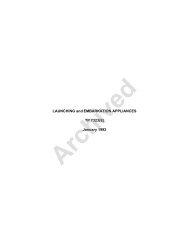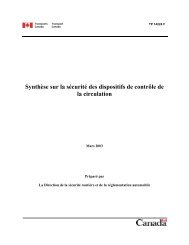APPROVED CHECK DISPATCHER MANUAL - Transport Canada
APPROVED CHECK DISPATCHER MANUAL - Transport Canada
APPROVED CHECK DISPATCHER MANUAL - Transport Canada
Create successful ePaper yourself
Turn your PDF publications into a flip-book with our unique Google optimized e-Paper software.
TP 14114 <strong>APPROVED</strong> <strong>CHECK</strong> <strong>DISPATCHER</strong> <strong>MANUAL</strong><br />
9.4.6 Stereotype<br />
As with the error of leniency, the error of stereotype has its source in likes, dislikes, opinions,<br />
prejudices, etc. In this case however, an ACd may allow personal opinion or prejudice to<br />
influence the assessment of the candidate and award undeservedly low marks.<br />
9.4.7 Logical Error<br />
Logical error occurs when an ACd assumes that a high degree of ability in one area means<br />
a similar degree of competence in another. This is especially true if more than one item being<br />
assessed is similar or related. A good mark on one or two items does not mean the candidate is<br />
also qualified on all. The full competency check must be completed and marked.<br />
9.4.8 Error of narrow Criterion<br />
This may occur when an ACd has more than one candidate to evaluate. The ACd may, under<br />
this condition, rate each applicant against the others within the group instead of against the<br />
standards. If the group to be tested is above average, a candidate who is of average ability may<br />
be awarded an undeservedly low mark. If the group of candidates to be tested is below average,<br />
then a candidate who performs the best within this group may be awarded a higher assessment<br />
than actually deserved.<br />
9.4.9 Error of delayed Grading<br />
Should a delay occur in awarding the assessment for an item, there might be a tendency<br />
to award average marks due to the lack of information and/or poor recall. By not making an<br />
assessment immediately after the event, the ACd may award assessments based upon an<br />
overall impression of the competency check. This results in an erroneous assessment and a<br />
dCC Report that is of little value to the training system.<br />
9.4.10 Standards Error<br />
All the errors we have discussed result in a standards error. However, if an ACd is not<br />
thoroughly familiar with established performance criteria, as outlined in this manual, it is virtually<br />
impossible to conduct an evaluation to that standard. While these errors are presented here<br />
on paper in a clear and obvious way, under the actual conduct of a dCC, this is not always<br />
so. normally it is a combination of two or more of the errors and clear and obvious is not an<br />
apparent trait. Therefore, the ACd must be aware of these errors and consciously prevent such<br />
errors from entering, in any degree, into the assessment of competency checks they conduct to<br />
ensure the validity of the marks they award.<br />
Page 34 2 nd Edition - november 2011


